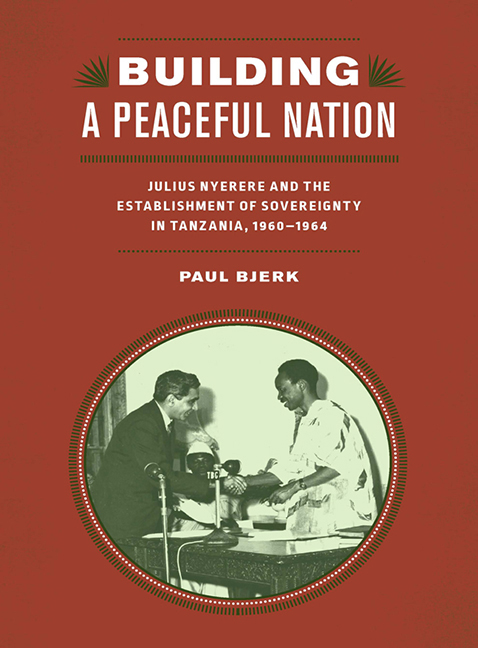Crossref Citations
This Book has been
cited by the following publications. This list is generated based on data provided by Crossref.
Yousaf, Farooq
and
Poncian, Japhace
2018.
Detriments of colonialism on indigenous conflict resolution: an analysis of Pakistan and Tanzania.
Contemporary Justice Review,
Vol. 21,
Issue. 4,
p.
455.
2019.
Power and the Presidency in Kenya.
p.
141.
2019.
Power and the Presidency in Kenya.
p.
266.
2019.
Power and the Presidency in Kenya.
p.
95.
2019.
Power and the Presidency in Kenya.
p.
280.
2019.
Power and the Presidency in Kenya.
p.
38.
2019.
Power and the Presidency in Kenya.
p.
1.
2019.
Power and the Presidency in Kenya.
p.
304.
RICH, JEREMY
2019.
MANUFACTURING SOVEREIGNTY AND MANIPULATING HUMANITARIANISM: THE DIPLOMATIC RESOLUTION OF THE MERCENARY REVOLT IN THE DEMOCRATIC REPUBLIC OF CONGO, 1967–8.
The Journal of African History,
Vol. 60,
Issue. 2,
p.
277.
2019.
Power and the Presidency in Kenya.
p.
219.
2019.
Power and the Presidency in Kenya.
p.
250.
2019.
Power and the Presidency in Kenya.
p.
276.
Monaville, Pedro
2019.
The political life of the dead Lumumba: Cold War histories and the Congolese student left.
Africa,
Vol. 89,
Issue. S1,
p.
S15.
Melchiorre, Luke
2019.
Creating a ‘monster’: the National Youth Service pre-university training programme, student activism and the Kenyan state, 1978–90.
Africa,
Vol. 89,
Issue. S1,
p.
S65.
2019.
Power and the Presidency in Kenya.
p.
179.
Angelo, Anaïs
2019.
Power and the Presidency in Kenya.
2019.
Power and the Presidency in Kenya.
p.
66.
2019.
Power and the Presidency in Kenya.
p.
115.
Maupeu, Hervé
2020.
Le Kenya en marche, 2000-2020.
p.
29.
Vaughan, Chris
MacArthur, Julie
Hunter, Emma
and
McCann, Gerard
2020.
Visions of African Unity.
p.
49.





